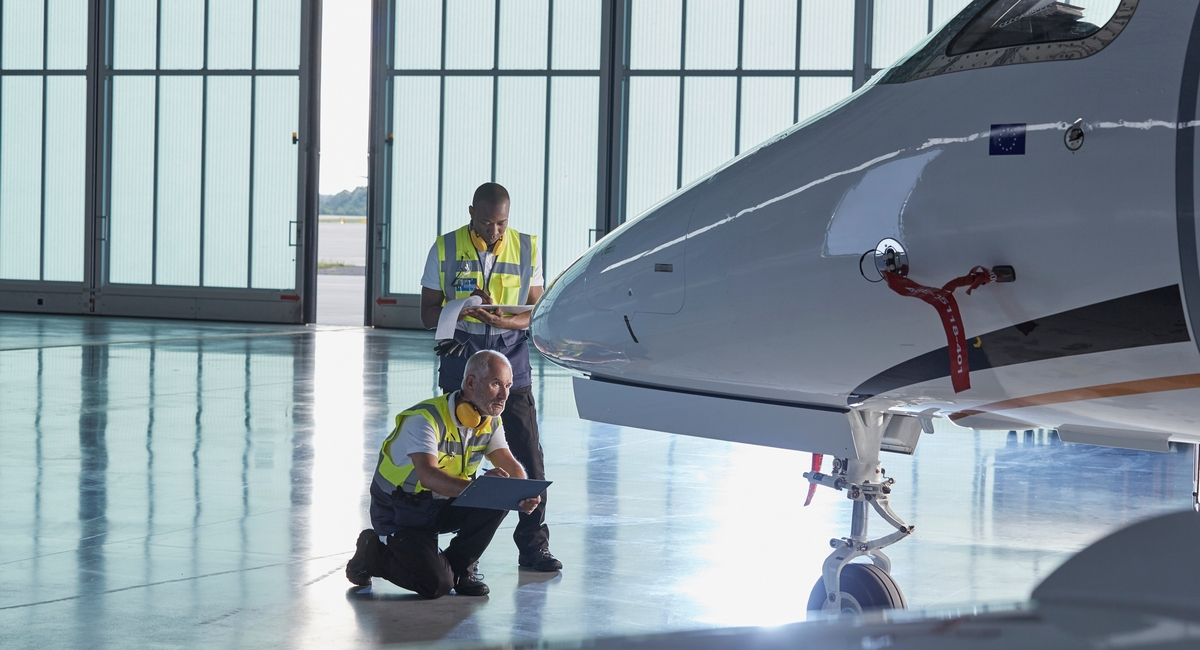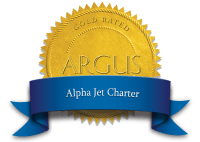
- July 26, 2024
Are Private Jets Safe? Everything You Need to Know About Private Jet Charter Safety
Private jets are safe, with strict regulations, well-trained pilots, and top-notch maintenance. Private jet charters offer the added benefits of fewer passengers and personalized service, increasing your comfort and security. If you're interested in the nitty gritty, there's a wealth of information about safety measures and practices in private jet travel waiting for you.
Understanding Private Jet Regulations
Before you book your next private jet charter, it's crucial to understand the regulations governing these flights for your safety and peace of mind.
The Federal Aviation Administration (FAA) sets these rules to ensure the highest level of safety. They regulate everything from maintenance, to pilot duty times, to flight operation procedures. Maintenance checks are mandatory, and they're more rigorous than you'd imagine. Your crew's health and fitness are scrutinized, and flight hours are closely monitored to prevent fatigue. Weather conditions, altitude levels, and flight paths are regulated too. This means your flight will be held to a higher safety standard.
On top of that, there are additional internationally recognized third-party organizations that set high standards for safety, training, and industry best practices for private service providers:
- Aviation Research Group US (ARGUS)
- Wyvern
The standards set forth by both Wyvern and ARGUS provide an extra layer of safety to your flight.
At Alpha Jet, safety is our top concern, backed by all necessary certifications for a secure flight, every time. Alpha Jet Charter is proud to be a registered ARGUS Gold operator and Wyvern Registered operator. This means that we not only meet our inter safety standards, but we also exceed the minimum standards for private jet charter operators set forth by these third-party entities.
Pilot Training and Qualifications
Equally important to your safety on a private jet charter is the training and qualifications of both the Pilot in Command (sometimes referred to as the PIC or Captain), and the Second in Command (sometimes referred to as the SIC or First Officer).
Charter pilots are rigorously trained, both in theoretical knowledge and practical skills. They must complete hundreds of hours of flight time and pass stringent tests before they meet the minimum qualifications to fly private jets. Once those minimum qualifications are met, they go through additional training to ensure they are proficient on the specific type of private jet that they will be flying.
Every year, private jet pilots are required to undertake regular refresher courses and simulator sessions to keep their skills sharp. This includes continuing education on FAA regulations, general aviation practices, and aircraft-specific details. Not to mention, every year charter pilots take yearly practical evaluations in full-motion simulators, and their performance is evaluated by FAA-approved examiners.
In addition, all Alpha Jet pilots (both Captains and First Officers) receive type ratings for their assigned aircraft. A type rating is like a secondary “license” that approves any pilot to operate a specific type of aircraft. In order to receive a type rating, our pilots must master every aspect of the aircraft. This mastery includes knowledge of every system onboard and how it operates, realistic simulator training on all types of emergencies, and operational and performance limitations of the aircraft. Furthermore, all Alpha Jet pilots are type rated and qualified to operate as Captains/PICs, meaning that each pilot is trained to the same performance, responsibility, and safety standards.
Furthermore, pilots are subject to stringent health checks to ensure they're physically and mentally fit. Every year, pilots for both commercial and private outfits alike, need to undergo a medical evaluation by a board-certified doctor who has been further-approved by the FAA. These doctors, called Aviation Medical Examiners (or AMEs for short), evaluate the physical and mental fitness of your pilots during these yearly examinations. You can rest assured that your private jet is being flown by someone who meets strict health standards, adding an extra layer of safety and reassurance to your charter experience.
Safety is paramount on every Alpha Jet flight, and that starts with our pilots and crew who are meticulously selected and rigorously trained. We're not just talking about the basics; our pilots possess thousands of flight hours under their belts, ensuring you're in the hands of seasoned professionals.
Therefore, while you're enjoying the luxury of a private jet, remember that the two seats in the flight deck are occupied by highly skilled, trained professionals with thousands of hours of combined experience. At Alpha Jet, you're in skilled hands as our pilots are among the most experienced in the industry.
Aircraft Maintenance Practices
Just as pilot qualifications are paramount for your journey, the maintenance practices implemented on the aircraft itself play a key role in ensuring your safety during a private jet charter.
Regular inspections and routine maintenance are standard protocol, and you'll find that aircraft are checked thoroughly before every flight. This includes engine checks, tests of navigation and communication equipment, and inspections of the plane's overall structural integrity. The meticulous attention to detail by pilots and maintenance crews is a big part of what keeps you safe in the air. Trust in the fact that the industry standard is to prioritize safety and precision over speed or cost.
What Else Makes Private Jets Safe?
There are a few factors that make flying privately a more attractive and potentially safer option to fly. Let's discuss some additional important factors like knowing your pilots and crew, the use of private terminals, the advantage of having fewer passengers, and the importance of quality inspections, all of which enhance the safety and overall experience of your private jet charter.
Knowing Your Pilots and Crew
Understanding the qualifications and experience of your pilots and crew is crucial when assessing the safety of private jet charters. You should ensure they're highly trained and have ample flight hours under their belts. They should also have strong experience flying the specific aircraft you're chartering. This is why it is important to check if the operator of your private jet is Wyvern or Argus rated – if they are, the crew will meet the flight hours requirements.
But it's not all about their qualifications. A large part of your journey will be defined by the crew’s dedication to impeccable service, ensuring a seamless and comfortable flight. With private jet flights, you will get to know the crew personally, which adds to the comfort and security. So, when you fly with Alpha Jet, you're not only choosing safety, but also professionalism and peace of mind.
Use of Private Terminals & Security Vetting Process
In the realm of private jet charters, the use of private terminals (or FBOs) significantly enhances safety and security. These terminals are less congested than public ones, reducing your exposure to potential risks, such as crowds and long queues.
You can arrive just 15 minutes before departure, avoiding unnecessary time in the terminal. While you don’t undergo traditional searches and scans like those offered in the commercial terminals, rest assured knowing that there is a vetting security process for private jet charters. When you book your private jet experience, each passenger on your manifest is cross-checked through government databases to ensure they are safe to fly. Once the passengers are vetted, their information is handed off to the pilots, who cross-reference photo identification.
Bags are subject to search by the crew if they find it necessary, and certain items like unloaded firearms, and hunting and fishing equipment is not allowed to be carried in the cabin. Furthermore, there is no carriage of hazardous material allowed onboard a private jet.
You also don't have to worry about the stress and chaos of conventional airports, enhancing your overall travel experience. So, when you're considering a private jet charter, remember, their use of private terminals adds a significant layer of safety.
Fewer Passengers
Safety leaps to a new level with private jet charters due to the significantly fewer passengers on board. You're not crammed in a cabin with hundreds of strangers. Instead, you're sharing the space with only a few other people, all of which you already know. This reduction in passenger count minimizes risks associated with overcrowded flights. Plus, with fewer people on board, the flight crew can provide more personalized attention, enhancing your comfort and satisfaction. You're not just another face in the crowd. Your safety is given utmost importance, making private jet charters a safer choice.
Comparing the Safety of Commercial and Private Flights
When you're weighing the pros and cons of commercial versus private flights, safety is a key factor to consider. In full transparency, both private and commercial flights are extremely safe. Aviation is one of the highest-regulated industries in the country and both private and commercial carriers are held to the highest standards.
Emergency Procedures on Private Jets
Just like commercial flights, private jets are equipped with safety measures and equipment to handle emergencies. The best safety “equipment” on board is your two-pilot crew. They are trained rigorously every year, and a part of crew training includes simulating several realistic emergency scenarios. Each year during training, your pilots go through training for lifelike scenarios that includes aircraft equipment failures, onboard medical emergencies, and security threats.
In case of technical issues, pilots are trained to handle a wide range of troubles. They're required to undergo rigorous training and re-certification to ensure their skills are up to date. The private aircraft that you charter has several systems built in for redundancy, like backup navigation and instrumentation and manual automation overrides in the rare instance of a system failure.
In addition, each private jet is outfitted with fully-stocked first aid kits, and some have defibrillators onboard. Should a medical emergency arise, your pilots are trained on how to expedite a landing in order to get medical services.
Another factor to consider is that private jets usually fly at higher altitudes where there's less air traffic, reducing the risk of enroute collision. To the same tune, private jets can also operate at a network of over 5,000 domestic airports, compared to commercial carriers which utilize around 500. Access to more airports not only means more customization for your flight, but also less traffic on the ground.
How to Choose a Safe Private Jet Charter
In choosing a safe private jet charter, it's crucial to look beyond luxury and comfort, focusing more on the safety records and protocols of the charter company. Research the company's past safety incidents and how they were handled. Check if they adhere to safety regulations set by aviation authorities. Additionally, inquire about the experience and training of their pilots. A seasoned, highly trained crew can make a significant difference in ensuring your safety.
Be sure to ask the right questions when choosing your private jet charter.
Conclusion
So, are private jets truly safe? Absolutely. Stringent regulations, highly trained pilots, meticulous maintenance, and robust emergency procedures ensure your journey is as safe as it's luxurious.
So, when choosing your next private jet charter, remember: it's not just about flying high, it's about flying safely! Contact Alpha Jet for information on our safety practices, and to book your next trip.


